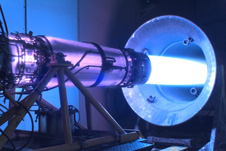
|
||
| Implementing Technical or Engineering Engineering and other technical disciplines require making numerous design or procedural decisions, often involving the selection of the "Best Practice" from a group of possible options. Some of these decisions are very complex, and ideally, an expert would be consulted. But realistically, experts are not always available and decisions sometimes need to be made quickly. Exsys Corvid® allows the decision-making process of the expert, or established "Best Practice" procedures, to be converted into an interactive online system that can provide detailed, situation-specific advice. Engineering decisions often involve the balancing of many factors. For example, selecting a pump to use for a particular application requires consideration of pressures, temperatures, materials, distances, and other factors. There are engineering standards for these, and with enough research an answer can be found. But, unless one does this regularly and understands the terminology, it is more likely that an expert will be required for a recommendation. Most questions are relatively simple and straightforward to the expert, and can be easily answered. But non-experts may not be able to find the answer with adequate confidence and understanding to proceed. If the expert is not available, decisions get delayed or are made poorly. Even when experts are available, they may spend so much of their time on routine problems,instead of spending time on the complex problems that make best use of their talents and experience. The solution is to field Exsys Corvid Knowledge Automation expert systems that capture the expert's decision-making logic and processes. These systems can be deployed online making the knowledge available 24/7. An automated online interactive session with the end user asks a few questions relevant to their situation, and precise custom advice is provided. It can even automate reports to include appropriate visuals, links, email, etc. Less experienced staff can perform at a higher level, and the system functions as a "quality check" for more experience staff in case some key factors might have been overlooked. The experts are freed from answering routine questions and can concentrate on new challenges requiring research or innovative solutions. Building this type of advisory system is quite easy with Corvid's If/Then rule syntax. If you ask the expert, "Why was this advice given", you will likely get an explanation similar to "If.. then ..." or "When X is used, you must", etc. These types of statements, as well as documented "Best Practices", can be incorporated in a Corvid system. Corvid's "Logic Block" structure makes it easy build complete maintainable rules quickly and to see gaps in the logic. The developer can ask the expert "But what if X was..?" This interaction rapidly fills in the logic so that the system can handle a wide range of problems. Additionally, this provides excellent, readable documentation of the expert's process. In cases where there are written engineering standards in place, converting them into a Corvid system makes them more accessible, far easier to use and much less prone to errors. The systems can also expedite speedier consistent training. Contact us today for a free Web conference. We'd be happy to discuss how Corvid can be used to deliver "Best Practice" knowledge online and provide practical, realistic solutions.
Some case studies of Exsys "Best Practices" systems.
|

"Since the application is Web-based and available globally throughout the corporation, engineers can quickly view how similar production processes are being monitored at other sites for similar products. Online help has also dramatically reduced the number of help desk calls from users" DuPont "The engineers using the systems have potential problems indicated before designs are finalized, and are educated by the systems in the process." Rockwell Automation |
|
 |
 |
|